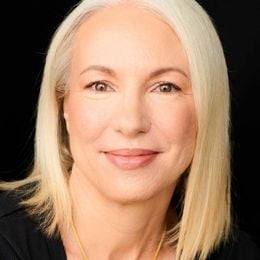Regrets of Things Past
I’m almost 50. When will I stop judging my career shortcomings and start appreciating my personal achievements?
I will turn 50 next spring. My oldest child is in college. My youngest is applying to schools. My husband and I are spending hours talking about what shape the next stage of our lives will take. We're facing an empty nest, and midlife.

Unlike my husband, who approaches these discussions with a sense of adventure and opportunity, I feel the regret of lost time, of things I was too quick to quit, the panic of my window rapidly closing. I haven't succeeded at building a career, and it feels like I'm out of time.
As a child, I watched my mother struggle with defining herself professionally. She was smart, skilled, hard-working. But she had gone to college without any practical thoughts of supporting herself; when she divorced my dad, she took a job as a secretary and later, an editor. Over the years she worked in leadership positions, picked up an MBA, yet never saw herself as a success and often left jobs suddenly after short tenures.
Seeking My Calling
I didn't want to repeat her trajectory and vowed to steadily build a solid career. In my family, it was believed that the surefire path to success was through a PhD, regardless of any actual interest in academia. I started a doctoral program but didn't finish, and didn't even attend the graduation ceremony for my master's degree because of the sting of that first failure.
I worked in the nonprofit world, short stints managing projects in women's reproductive health care, education and family services. I asked for salary increases; I sought promotions — things I knew women had to do to advocate for their ascension. I became the director of a small evaluation team and fought for the support my staff needed to do their best work.
I also spent years unemployed outside the house, raising my two children.
When people ask me what I do, I say I'm a writer. But I know many of my friends and family, maybe the majority, see what I do as a hobby. Or at least, that's my fear.
With the exception of being home with my kids, and also working with my evaluation team, I never really liked my jobs, never felt like I'd found my calling. I spent years in endless, tortured self-doubt: What am I here to do? When I started writing about 10 years ago, some of that questioning quieted.
I'm proud of the writing practice I've built, starting with my first short story to publishing in literary journals, completing a novel and a story collection, and trying freelance work. When people ask me what I do, I say I'm a writer. But I know many of my friends and family, maybe the majority, see what I do as a hobby. Or at least, that's my fear.
Every day, despite the personal fulfillment I feel from writing, I open my laptop and try to legitimize to myself how I spend my time. It's a constant fight against my ego, against the voice that tells me I've wasted the chance to build a real career in writing. That until I find an agent or sell a book, I'm playing pretend at home.
And so I refresh a familiar cycle: (1) tell myself I'm not doing enough, not contributing enough to the world, not being a good enough role model of a professional woman for my children; (2) search for jobs I don't want just because I think they may quiet the self-criticism in my head; (3) recommit to my writing practice with new strategies — a stricter schedule, assignments to complete, workshops, conferences — to make it feel more like a "real job," supplemented with volunteer work and care for my family and friends.
Personal Success Isn't Enough
And go about everyday tasks that bring me pleasure and serve a purpose but still feed my self-doubt.
For example, after two hours in the kitchen turning farmers' market tomatoes into sauce, I have to tell myself I have worth. After a second round of reading through my son's college essays to help him learn how to tighten his writing, I have to tell myself I have worth. After sharing sample pitch letters with a writer friend, I have to tell myself I have worth.
Without a career — one that I have built over decades, one that pays a salary — I feel like a failure.
No matter how many small ways my actions might add up, they are not a career. And without a career — one that I have built over decades, one that pays a salary — I feel like a failure.
There are things I haven't given up on. My marriage. My children. My writing. Writing feels like my last chance for that professional stamp of approval I so desperately crave. I know I've come to it late; what if I can't catch up?
A friend recently enumerated all of the ways I am not failing: My marriage is strong and something my husband and I both prioritize; my children are amazing people with the support they need to pursue their passions; I'm valued as a friend, as a peer; I'm doing something I love, writing, and not letting the constant rejection — stories not published, agents uninterested — shut me down.
My Narrow Definition of Success
She talked about the time my husband and I spend with our extended families, our involvement in our communities, my volunteer work. And yet, I was in tears listening to her, because I can't square those joys, those privileges, those accomplishments with my narrow definition of success. I'm almost 50, and I don't have a career that matches my years of maturity.
It's hard to untangle all the reasons why I feel so devastated by this part of my life. If it were so important to me from the beginning, why didn't I follow a path that would have led me to where I say I wish I were today? Why did it matter whether my early jobs felt like a true calling? Why didn't I finish my PhD, just to finish it? Were my expectations too high?
Whose voices are in my head, repeating this failure? My mother's, recalling the disappointments she carried for her own shortchanged career? My friends', who work long hours at jobs where they are the bosses, where they are never able to turn off the demands?
I'm almost 50, and I don't have a career that matches my years of maturity.
Those boss-lady friends who have had the dynamic work lives I tell myself I should have pursued don't feel any more satisfied in their choices than I do; those successes haven't defined them, not really.
My husband has had incredible professional success. Does he judge his own self-worth as better than mine? No way. What he wants to do these days is grow a cutting garden from seed, but maybe it's easier for him to give himself permission to do this kind of thing, this hobby, because, by any calculation, he's already made significant impacts on his community through his career.
Why do professional achievements matter so much? I blame myself for my shortcomings, but I also exist in a society that devalues unpaid work. Devalues the work of women, the work of childrearing. The contributions of artists. No matter the reassurances from the people who love me, and despite my own strength and self-confidence, I can't shake the world I live in when it comes to how I judge myself.
So How Do I Make Peace?
Because I'm exhausted. I'm exhausted trying to assure myself that the way I spend my workdays is legitimate. I'm exhausted analyzing where I might have better understood myself early on to choose the right education, the right career; I'm exhausted second-guessing those years I spent at home raising my children, years I mostly loved and were good for the whole family. I'm exhausted reminding myself that I have skills, that I was successful in the traditional workplace and I'm having some success now as a writer.
I don't want to spend the second half of my life held captive by the failure of only a small part of me. But for now, that failure looms large.
What can I do about turning 50? My hope is that I can approach it with kindness. For myself.
It won't be easy.


